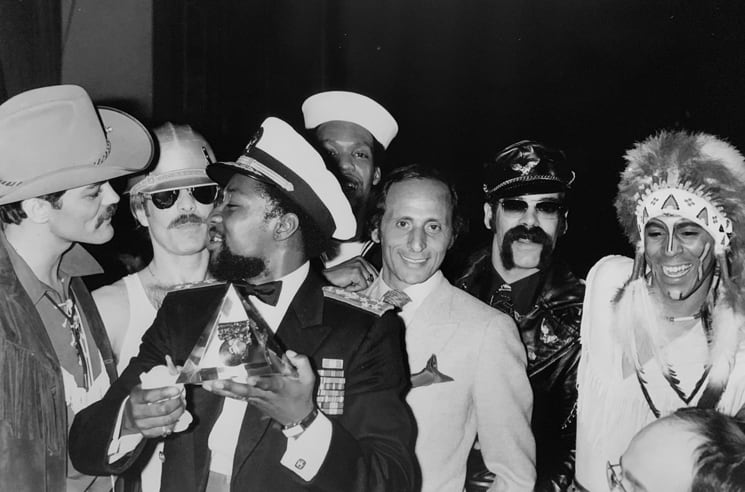Henri Belolo — a music producer best known for co-creating disco group Village People — has died. New York Daily News and Rolling Stone report Belolo passed away Saturday (August 3), while his label Scorpio Music confirmed the news August 5. A cause of death has not been determined. He was 82.
"I am devastated by the untimely death of Henri Belolo who was my former producer, mentor and co-creator of Village People," lead singer Victor Willis said in a statement to Rolling Stone. "Henri who actually died on August 3, 2019, leaves an impressive body of work that helped shape the disco genre, and as a record executive, he was par excellence. A private funeral was held already in France [in] Paris, but we are working on a public memorial service which is expected to be announced soon."
In a statement to the News, Village People's Randy Jones called Belolo "a visionary and international business genius who helped define the look and the sound of the disco era," adding that he "brought humor, glamour, sass, and some may offer, a unique sense of wit to the music business at the very time it was in critical need."
Born in Casablanca, Morocco in 1936, Belolo grew up listening to American and African music. In his 20s, he moved to Paris, France, to work as a DJ and producer.
After moving to New York in 1973, Belolo met producer and fellow Moroccan Jacques Morali. In 1978, the pair co-founded the Village People, a group that celebrated gay culture with all six members in costume. Belolo co-wrote some of the group's biggest hits, including "Y.M.C.A.," "Macho Man" and "In the Navy."
"We were keen of doing something for [gay liberation and the political side of it], because Jacques was gay, and I was feeling that an injustice was done to the gay community," Belolo reflected in conversation with Red Bull Music Academy in 2004. "And I did not like that American mentality of bigotry and hypocrisy. And I didn't see why these people would be treated like this. Like black people, as well – I did not like the way they were treated. So I was not doing this, really, as a businessman trying to make a fortune, and it happens anyway, after. But I always say what comes from the heart goes to the heart. I really did it as a provocative, subversive way of telling you, 'This is the way it is.'"
"I am devastated by the untimely death of Henri Belolo who was my former producer, mentor and co-creator of Village People," lead singer Victor Willis said in a statement to Rolling Stone. "Henri who actually died on August 3, 2019, leaves an impressive body of work that helped shape the disco genre, and as a record executive, he was par excellence. A private funeral was held already in France [in] Paris, but we are working on a public memorial service which is expected to be announced soon."
In a statement to the News, Village People's Randy Jones called Belolo "a visionary and international business genius who helped define the look and the sound of the disco era," adding that he "brought humor, glamour, sass, and some may offer, a unique sense of wit to the music business at the very time it was in critical need."
Born in Casablanca, Morocco in 1936, Belolo grew up listening to American and African music. In his 20s, he moved to Paris, France, to work as a DJ and producer.
After moving to New York in 1973, Belolo met producer and fellow Moroccan Jacques Morali. In 1978, the pair co-founded the Village People, a group that celebrated gay culture with all six members in costume. Belolo co-wrote some of the group's biggest hits, including "Y.M.C.A.," "Macho Man" and "In the Navy."
"We were keen of doing something for [gay liberation and the political side of it], because Jacques was gay, and I was feeling that an injustice was done to the gay community," Belolo reflected in conversation with Red Bull Music Academy in 2004. "And I did not like that American mentality of bigotry and hypocrisy. And I didn't see why these people would be treated like this. Like black people, as well – I did not like the way they were treated. So I was not doing this, really, as a businessman trying to make a fortune, and it happens anyway, after. But I always say what comes from the heart goes to the heart. I really did it as a provocative, subversive way of telling you, 'This is the way it is.'"
